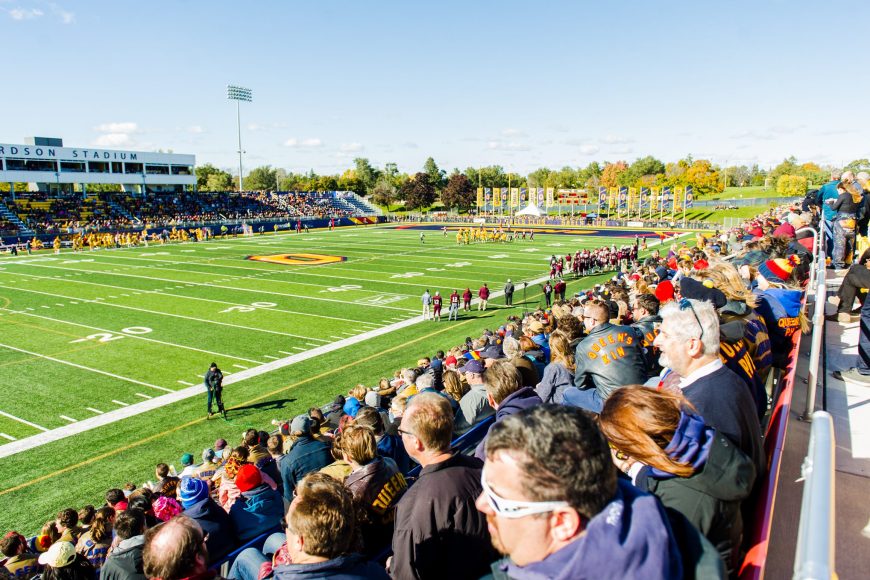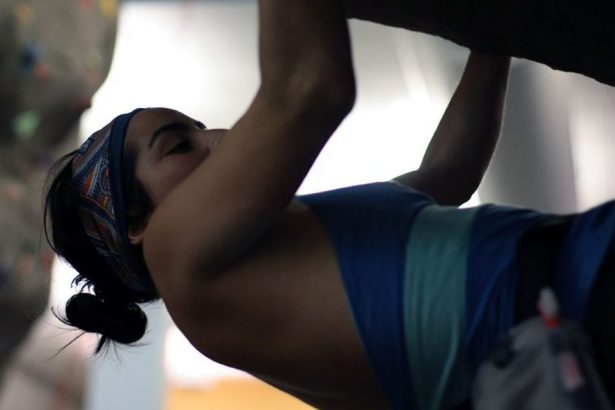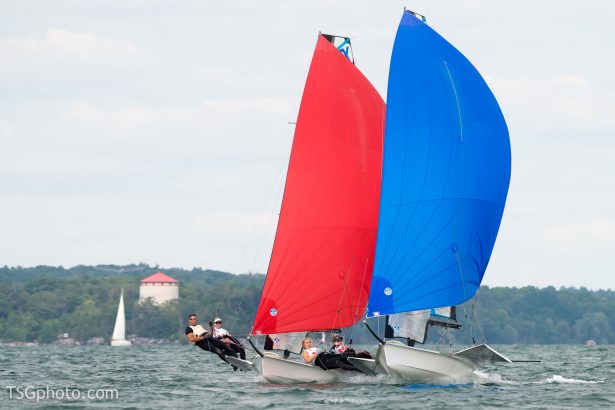The remarkable run of the reigning kings at Queen's.
This is a column about sports. May I present my credentials? Actually, I have only one: a sense of wonder about them, or a passion, at least, for exploring them in a Kingston context – and perhaps coming to understand each sport’s appeal to those (sometimes including yours truly) who are mad keen about them.
I have written – and in some cases, more than once – about hockey, baseball, football, soccer, competitive sailing, coaching, fandom, show jumping, Don Cherry, the horse-human connection, the dog-human connection, sheepdog trials, basketball, fencing, cycling, golf, trekking, tennis, a blind powerlifter, wilderness tripping, competitive cheerleading, skydiving, canoeing, curling, yoga, cricket, ultimate frisbee, running, volleyball, rock climbing, and roller derby. To name a few.
There is one glaring omission: the remarkable run of the Queen’s University men’s rugby team. Let’s start with the 2017 season when a new full-time coach, Scottish expat David Butcher, guided the team to an undefeated season that culminated in an Ontario University Athletics (OUA) championship after a 62-17 drubbing of Guelph at Nixon Field on the Queen’s campus. Through the entire season, the Gaels never once trailed – neither during the eight-game regular season nor during two playoff games. Most of the victories were lopsided, including a 78-0 walloping of the University of Toronto.
Just before that championship game on November 11, 2017, three longtime coaches with the Queen’s team – Peter Huigenbos, Gary Gilks and Luke Follwell – were honoured for their contributions to varsity rugby at the university from 2004 to 2016. In that time, the win-loss record for the Gaels was 103-26-2. They had won five OUA championships, their players had taken home 20 major awards and 72 players had earned all-star accolades.
I was especially interested in Peter Huigenbos. The year 2016 marked his 20th year of involvement in Queen’s men’s rugby – five years as a player and 15 years as a coach, including 10 years as head coach. Four times he was named the OUA coach of the year. Seven players he coached – including, most recently, Liam Underwood, Dan Moor, Lucas Rumball and Kainoa Lloyd – have all gone on to play for the Canadian national rugby team, now captained by Rumball. From 2008 to 2013, Huigenbos served as performance analyst for the national team. Perhaps even more impressive is the program that he developed to get local athletes playing rugby: he helped draw 180 or so Queen’s students into the rugby fold each year, enough to fill eight university teams. And dozens of Queen’s grads over the years have gone on to play for local teams.
I met Peter Huigenbos at a downtown coffee shop not knowing what he looks like. The name is Dutch, I was sure, and Dutch men are on average the tallest on the planet. A tall (six foot two inches), burly (200-plus pounds) man entered the cafe just as I did, and that man was indeed the man I was looking for.
“My father came from Holland in 1949,” Huigenbos told me. “The family name was Van Huigenbos, but we dropped the ‘Van.’ My father decided to become a veterinarian so he could avoid farming, but he eventually bought two farms, which we still have – including the 35-acre farm at Belmont, outside London, where he grew up. As for why the Dutch are tall, the joke in Holland (where all those dikes hold back the sea) is that it’s so we’ll keep our heads above water.”
I had the sense of a fairly shy man who, had the subject been anything other than rugby, might have declined an interview. When it comes to rugby, however, this man can’t say enough. “The beauty of rugby,” he told me, “is that it’s a game for all shapes and sizes.”
I admitted my near-complete ignorance of the game and asked, “I’m five-10, 160 pounds. Could I play?” “Sure,” said Huigenbos, as confident as a missionary speaking to a possible convert. “You’d be a back, but you might have a 260-pound teammate up front.” (I do love rugby jargon: “loosehead prop,” “tighthead prop,” “lock,” “hooker,” “blindside flanker,” “ruck,” “maul” ... If you want to know what the words mean, you can ask Mr. Google, as I did.)
To this former coach I posed the same question I had put several years ago to Queen’s Golden Gaels football coach Pat Sheahan: which burns hotter in your memory, the joy of victory or the sting of defeat? The football guy and the rugby guy agreed. Winning championships is sweet, but the pain of a heartbreaking loss endures. For Peter Huigenbos, the defeat that haunts him in a way (and likely not the way you suspect) is the championship game that took place on November 13, 2016: Queen’s versus Guelph, with the Gryphons on home field trying to break the Gaels’ stranglehold on the championship, which they had won four years straight. At the end of regular time (80 minutes), the score was knotted at 17. One extra period led to another and, finally, to two rounds of drop-kick shootouts, one from 22 metres out, another from 30 metres out. This was sudden death, and it did not go Queen’s way.
That was the last game that Huigenbos coached. Without telling anyone, he had made up his mind a week beforehand to call it a day. By then he was an assistant coach, but the demands on his time from his young family (he and his wife, Morgan Huigenbos, have a six-year-old boy, Emmet, and a three-year-old girl, Cordelia), his job (he’s director of real estate and environmental initiatives at City Hall), and the rigours of coaching (he called it a virtual year-round job that worked out to about $3 or $4 an hour) had pushed him over the edge. Besides, Queen’s alumni were putting on the pressure for a full-time coach, and, when funding for that position became available, the die was cast.
“Last year,” Huigenbos said, “was the first time I saw a Queen’s rugby game without being a player or a coach. It was fine and nice to see the players I coached play well. But I saw the whole game as a coach. I could not turn it off.”
At one point during our chat, a former player on the Queen’s rugby team entered the cafe, and coach and player exchanged pleasantries. “I miss the players and the coaches and our time together,” Huigenbos said. “But I’m happy to do other things.” We talked more about rugby, its now-higher profile, the peaks and valleys of the men’s national team, but somehow conversation kept drifting back to that unforgettable defeat.
What haunts Huigenbos is not so much the loss – Guelph, he stressed, worked hard and was worthy of the win – but the lead-up. “I was very particular with game preparation,” he explained, “and we would work all week as a team to prepare for Saturday and make sure our game plan was in order. I learned the process from Kieran Crowley, a former All Black (New Zealand’s famous rugby team) and Canada’s men’s national team coach from 2008 to 2015. I would even make sure the balls were all perfectly inflated before game time. I had some tough losses early in my career due to lack of preparation, and I swore that would never happen again. As coaches, we got better at being prepared. But the last game we coached, I had not contemplated a triple overtime. Some hockey teams practice shootouts. We never practiced dropkicks.” Left unsaid: “What if we had?”
Huigenbos got started in rugby at Brantford Collegiate Institute, where a coach named Bob Boos (another Dutchman) often led his team to the provincial finals. He was guided by this philosophy: “We will do the common things uncommonly well.”
Huigenbos’s own coaching philosophy was built on several pillars. One was depth at each position. “Every spot is earned,” is how he put it. All players on the team knew that if their skill or courage flagged (and it strikes me that rugby requires a great deal of courage), others would gladly don those sweater numbers. Another pillar was exposure to games (as opposed to practices), and the better the competition, the more the players learned to execute under pressure – which is why Gilks, Follwell et al. often traveled with the non-varsity teams to Syracuse, Montreal, Ottawa, and Belleville for exhibition games. Finally, it was understood that each year, each player had to get better.
What Peter Huigenbos loves about rugby is the sense of community the game fosters, how he got to know not just the players but their parents, how the teams that Queen’s played against would share a meal with them either before the game or after the game and sometimes both. What other sport does that? “It’s about respect for your opponent and learning from your opponent,” says Huigenbos. “You go buy your opposing number a beer and you chat with him. When he was captain of the Queen’s team last year, Michael Douros would talk to other captains – or the referee. It’s not like hockey.”
Even tighter is the bond felt by all current players on the Queen’s squad and indeed everyone who has ever played for that team. “The sense of pride,” says Michael Douros, a five-year veteran, “is amazing. Alumni offer endless support, help finding summer jobs. Once you’ve been a Queen’s rugby player, you have joined a big brotherhood.” Michael’s father, Paul Douros, a longtime teacher, coach and former rugby player (who happens to be a friend of mine and who gave me the idea for this column), suggests that rugby truly is a special sport.
“What is unique about rugby,” he points out, “is that students often jump in late. In hockey or basketball, if you fall behind in developing a skill set, you will never catch up. Athletes who realize at 16 that they aren’t going to make it in hockey or who are cut from a basketball team in high school give rugby a try and they take to it. So many skills are transferable. Rugby offers a second life for athletes. It’s also a sport where someone who never really played sports but who always wanted to is given a chance. Rugby almost always has a no-cut policy. If you can’t make the first team, you can play on the second team. Queen’s carried up to eight teams – quite an undertaking and Peter’s most understated contribution.”
To watch the Queen’s men’s rugby team in action this fall, visit: https://gogaelsgo.com.
This article was generously provided by Kingston Life. For more captivating local content, visit




